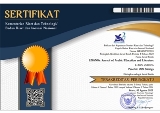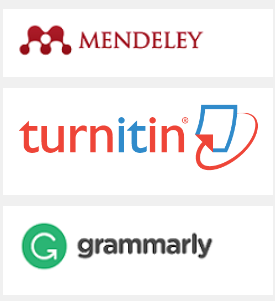Traditional Method vs AI Chatbot-Assisted in Arabic Learning
DOI:
https://doi.org/10.18326/lisania.v9i1.1-14Keywords:
Arabic Language Learning, Traditional Methods, AI-Assisted Learning, Chatbot, Reading SkillsAbstract
This study aims to compare the effectiveness of traditional Arabic language learning methods with AI-assisted learning using the Smojo.AI chatbot in improving students' reading skills. Using a mixed-methods approach, this research involved both quantitative and qualitative data collected from pre- and post-tests, interviews, and observations. The experimental group utilized the AI-powered Smojo.AI chatbot, while the control group followed traditional learning methods. The findings reveal that the experimental group demonstrated significant improvement in reading skills, with a higher post-test mean score compared to the control group, which showed a decline in performance. Statistical analysis confirmed the effectiveness of AI-assisted learning in enhancing students' Arabic language skills, especially in reading. This research contributes to the ongoing discussion about integrating technology into language education, offering valuable insights into the potential of AI tools in modernizing Arabic language teaching.
References
Alrajhi, Assim S. 2024. “Artificial Intelligence Pedagogical Chatbots as L2 Conversational Agents.” Cogent Education 11(1). doi: 10.1080/2331186X.2024.2327789.
Awaliyah, Mursyidatul. 2022. “Analisis Kontrastif Bahasa: Urgensi Memahami Budaya Dalam Kajian Bahasa Arab.” TASHWIR 10(2):109–22.
Azmi, Ziaurrahman. 2023. “Arabic Language: Traditional vs AI-Enhanced Instruction.” Pp. 1–4 in Proceedings of the 5th International Conference on Information Management & Machine Intelligence. New York, NY, USA: ACM.
Bakalla, Muhammad Hasan. 2023. Arabic Culture: Through Its Language and Literature. Taylor & Francis.
Belda-Medina, Jose, and José Ramón Calvo-Ferrer. 2022. “Using Chatbots as AI Conversational Partners in Language Learning.” Applied Sciences 12(17):8427. doi: 10.3390/app12178427.
Hidayah, Wahyudi. 2022. “APLIKASI METODE SOROGAN DALAM MENINGKATKAN BERBICARA BAHASA ARAB DI SEKOLAH MENEGAH KEJURUAN.” Humantech: Jurnal Ilmiah Multidisiplin Indonesia 2(Spesial Issues 1):148–54.
Hitchcock, J. H., and A. J. Onwuegbuzie. 2022. The Routledge Handbook for Advancing Integration in Mixed Methods Research. Taylor & Francis.
Hoidn, S., and M. Klemenčič. 2020. The Routledge International Handbook of Student-Centered Learning and Teaching in Higher Education. Taylor & Francis.
Khaldûn, I., N. J. Dawood, F. Rosenthal, and B. B. Lawrence. 2020. The Muqaddimah: An Introduction to History - Abridged Edition. Princeton University Press.
Labadze, Lasha, Maya Grigolia, and Lela Machaidze. 2023. “Role of AI Chatbots in Education: Systematic Literature Review.” International Journal of Educational Technology in Higher Education 20(1):56.
Limna, Pongsakorn, Somporch Jakwatanatham, Sutithep Siripipattanakul, Pichart Kaewpuang, and Patcharavadee Sriboonruang. 2022. “A Review of Artificial Intelligence (AI) in Education during the Digital Era.” Advance Knowledge for Executives 1(1):1–9.
Management Association, I. R. 2015. Curriculum Design and Classroom Management: Concepts, Methodologies, Tools, and Applications: Concepts, Methodologies, Tools, and Applications. IGI Global.
Nasarudin, N., M. Rahayu, D. P. Asyari, A. Sofyan, M. Fadli, K. K. Hari, B. M. Nehe, L. O. M. R. A. U. Manarfa, Y. Yelfiza, and E. Mulyati. 2024. Metode Penelitian Kombinasi (Mixed Method). CV. Gita Lentera.
Nely Rahmawati Zaimah, Eko Budi Hartanto, and Fatchiatu Zahro. 2023. “Acceptability and Effectiveness Analysis of Large Language Model-Based Artificial Intelligence Chatbot Among Arabic Learners.” Mantiqu Tayr: Journal of Arabic Language 4(1):1–20. doi: 10.25217/mantiqutayr.v4i1.3951.
Ni’am, Ahmad Miftahun. 2022. “Urgensi Transformasi Kurikulum Bahasa Arab Madrasah Aliyah Di Indonesia: Menelisik Historisitas Dan Perkembangannya Dari Masa Ke Masa.” Jurnal Pendidikan Dan Pemikiran 13–24.
Sa’Idah, Mandrasi Amira, Karno Diantoro, Umi Mahmudah, Ellen Dolan, Nesti Anggraini Santoso, and Sausan Raihana Putri Junaedi. 2024. “Enhancing Arabic Language Teaching through Artificial Intelligence: Assessing Effectiveness and Educational Implications.” Pp. 1–8 in 2024 3rd International Conference on Creative Communication and Innovative Technology (ICCIT). IEEE.
Sherina, Putri, and Faisal Hendra. 2024. “Analisis Komparatif Antara Metode Gramatika Terjemah Dan Metode Langsung Dalam Pembelajaran Bahasa Arab.” Jurnal Multidisiplin West Science 3(03):255–63.
Supriadi, Salsabila Rheinata Rhamadani Putri, Sulistiyani Usman Haedi, and Muhammad Minan Chusni. 2022. “Inovasi Pembelajaran Berbasis Teknologi Artificial Intelligence Dalam Pendidikan Di Era Industry 4.0 Dan Society 5.0.” Jurnal Penelitian Sains Dan Pendidikan (JPSP) 2(2):192–98.
Varatta, Katie. 2017. “Teacher-Centered versus Learner-Centered Learning.” Retrieved May 23:2020.
Wu, Rong, and Zhonggen Yu. 2024. “Do AI Chatbots Improve Students Learning Outcomes? Evidence from a Meta‐analysis.” British Journal of Educational Technology 55(1):10–33.
Zaimah, Nely Rahmawati, Eko Budi Hartanto, and Fatchiatu Zahro. 2024. “Acceptability and Effectiveness Analysis of Large Language Model-Based Artificial Intelligence Chatbot Among Arabic Learners.” Mantiqu Tayr: Journal of Arabic Language 4(1):1–20.
Downloads
Published
Issue
Section
License
Copyright (c) 2025 Siti Shalihah, Heru Fradana, Badr Nasser Aljabr

This work is licensed under a Creative Commons Attribution-NonCommercial-ShareAlike 4.0 International License.






